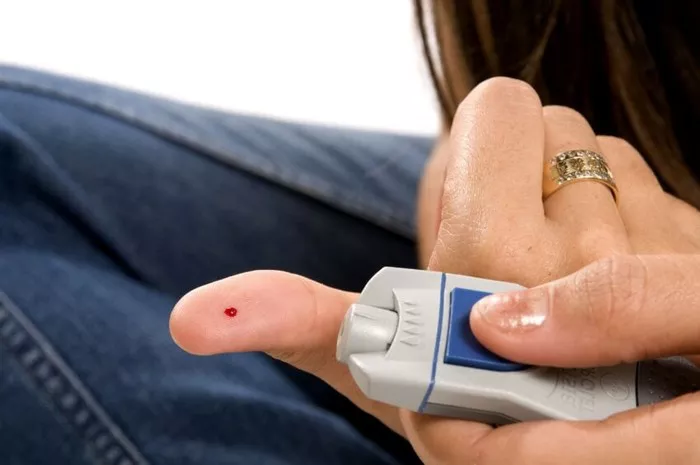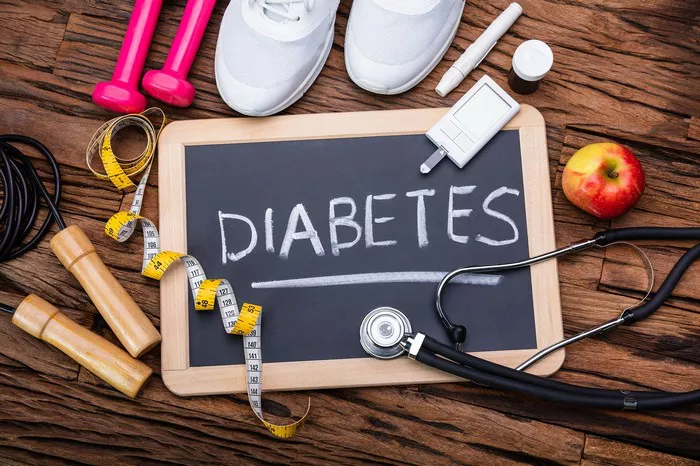Diabetes, a chronic condition characterized by elevated blood glucose levels, poses significant health challenges globally. Effective management of diabetes hinges on a multifaceted approach, with diet and exercise being pivotal components. This article delves into the nuances of diabetes, emphasizing the critical roles that diet and exercise play in its management.
Explanation of Diabetes
A Brief Overview of Diabetes
Diabetes mellitus is a metabolic disorder marked by chronic hyperglycemia resulting from defects in insulin secretion, insulin action, or both. Insulin, a hormone produced by the pancreas, is crucial for glucose uptake by the cells, thus lowering blood sugar levels. When this process is disrupted, glucose accumulates in the blood, leading to various complications.
Type 1 diabetes, often diagnosed in children and young adults, is an autoimmune condition where the body’s immune system attacks insulin-producing beta cells in the pancreas. This results in little to no insulin production. Individuals with Type 1 diabetes require lifelong insulin therapy to manage their blood glucose levels.
Type 2 diabetes, the more common form, is primarily associated with insulin resistance, where the body’s cells do not respond effectively to insulin. This form is often linked to lifestyle factors such as obesity, physical inactivity, and poor diet. While it can be managed with oral medications and lifestyle modifications, some individuals may eventually require insulin therapy.
Role of Diet in Diabetes Management
How a Balanced Diet Can Help Control Blood Glucose Levels
Diet plays a crucial role in managing diabetes. A balanced diet helps regulate blood glucose levels, maintain a healthy weight, and prevent complications. Key dietary strategies include monitoring carbohydrate intake, choosing low-glycemic index foods, and ensuring adequate nutrient intake.
Foods to Eat
Whole Grains: Foods like oatmeal, brown rice, and whole wheat bread have a lower glycemic index and provide sustained energy without spiking blood sugar levels.
Non-Starchy Vegetables: Leafy greens, broccoli, and peppers are low in calories and carbohydrates, making them excellent choices for blood sugar control.
Lean Proteins: Chicken, turkey, fish, tofu, and legumes help in maintaining muscle mass and provide satiety without raising blood glucose levels.
Healthy Fats: Avocados, nuts, seeds, and olive oil improve heart health, which is crucial for people with diabetes.
Foods to Avoid
Sugary Beverages: Sodas, sweetened teas, and energy drinks can cause rapid spikes in blood glucose levels.
Refined Carbs: White bread, pastries, and other refined grains have a high glycemic index and can lead to blood sugar spikes.
Processed Snacks: Chips, cookies, and candy are often high in unhealthy fats, sugars, and salt, contributing to poor blood glucose control and weight gain.
Fried Foods: These are high in unhealthy fats and calories, which can worsen insulin resistance.
Impact of Exercise
How Different Forms of Exercise Affect Blood Glucose Levels
Regular physical activity is essential in diabetes management. Exercise improves insulin sensitivity, helps maintain a healthy weight, and reduces the risk of cardiovascular disease. Different types of exercise offer unique benefits for people with diabetes.
Aerobic Exercise
Activities like walking, running, cycling, and swimming improve cardiovascular health and insulin sensitivity. Aerobic exercise helps lower blood glucose levels by increasing glucose uptake by muscles during and after the activity.
Resistance Training
Strength training exercises, such as weightlifting or body-weight exercises, build muscle mass, which enhances glucose uptake and improves insulin sensitivity. More muscle mass means more glucose can be stored and used by the body, reducing overall blood glucose levels.
Combined Training
A mix of aerobic and resistance training can offer comprehensive benefits. This combination helps in maximizing glucose control, improving cardiovascular health, and increasing muscle mass more effectively than either type of exercise alone.
Exercise Recommendations
Guidelines for Exercise Frequency and Intensity
For individuals with diabetes, regular physical activity is highly recommended. However, the intensity and frequency of exercise should be tailored to individual health status and fitness levels.
Frequency: Aim for at least 150 minutes of moderate-intensity aerobic exercise per week, spread over at least three days, with no more than two consecutive days without exercise.
Intensity: Moderate-intensity exercise includes activities like brisk walking or light cycling, where you can talk but not sing. For those more fit, incorporating vigorous-intensity exercises like running or high-intensity interval training (HIIT) can be beneficial.
Resistance Training: Engage in muscle-strengthening activities at least twice a week, targeting all major muscle groups.
Dietary Guidelines
Caloric Intake Recommendations and Meal Planning
Proper meal planning and caloric intake are essential for managing diabetes. The goal is to maintain blood glucose levels within the target range while ensuring adequate nutrition.
Caloric Intake
Individualized Plans: Caloric needs vary based on age, sex, weight, physical activity level, and overall health. A registered dietitian can help create a personalized meal plan.
Balanced Meals: Meals should include a balance of carbohydrates, proteins, and fats. Typically, carbohydrates should comprise 45-60% of total daily calories, proteins 15-20%, and fats 20-35%.
Meal Planning Tips
Consistent Meal Timing: Eating at regular intervals helps maintain steady blood glucose levels.
Portion Control: Using smaller plates, measuring portions, and being mindful of serving sizes can prevent overeating and blood sugar spikes.
Healthy Snacks: Include snacks that are high in fiber and protein to keep blood glucose levels stable between meals.
Blood Sugar Monitoring
Importance of Monitoring Blood Sugar Levels
Regular monitoring of blood sugar levels is vital for individuals with diabetes, especially when engaging in physical activity. Monitoring helps in making informed decisions about diet, exercise, and medication.
Before Exercise: Check blood glucose levels to ensure they are not too low (<100 mg/dL) or too high (>250 mg/dL).
During Exercise: For prolonged activities, monitor blood sugar levels periodically to avoid hypoglycemia.
After Exercise: Check levels again post-exercise to understand how the activity affected blood sugar and to prevent delayed hypoglycemia.
Safety Precautions
Tips for Exercising Safely
Medical Alert Bracelet: Wearing a medical alert bracelet can provide critical information to responders in case of an emergency.
Carry Glucose Tablets: Always have a quick source of sugar, such as glucose tablets, to treat hypoglycemia if it occurs.
Stay Hydrated: Dehydration can affect blood sugar levels, so drinking water before, during, and after exercise is essential.
Warm-Up and Cool-Down: Gradually warming up and cooling down helps prevent injuries and ensures a safer exercise experience.
Benefits of Lifestyle Changes
Evidence of the Positive Impact of Diet and Exercise
Making lifestyle changes through diet and exercise can significantly benefit individuals with diabetes. Research indicates that these changes can lead to:
Weight Management: A combination of healthy eating and regular exercise helps in achieving and maintaining a healthy weight, which is crucial in managing Type 2 diabetes.
Improved Insulin Sensitivity: Both diet and exercise enhance the body’s ability to use insulin more effectively, thereby controlling blood glucose levels better.
Cardiovascular Health: Reducing the risk of heart disease, which is a common complication of diabetes, through improved lipid profiles and lower blood pressure.
Overall Well-being: Enhanced mood, increased energy levels, and better quality of life are often reported by individuals who adopt healthier lifestyles.
Conclusion
In conclusion, diet and exercise are indispensable components of diabetes management. A balanced diet helps regulate blood glucose levels, while various forms of exercise improve insulin sensitivity and cardiovascular health. By following tailored exercise recommendations, adhering to dietary guidelines, and monitoring blood sugar levels, individuals with diabetes can achieve better health outcomes and enjoy a higher quality of life. The commitment to lifestyle changes not only aids in managing diabetes but also in preventing complications, ensuring long-term well-being.
Related Topics
- What are some low glycemic fruits?
- To prevent diabetes what to eat
- Can someone with hypoglycemia do the keto diet?



























